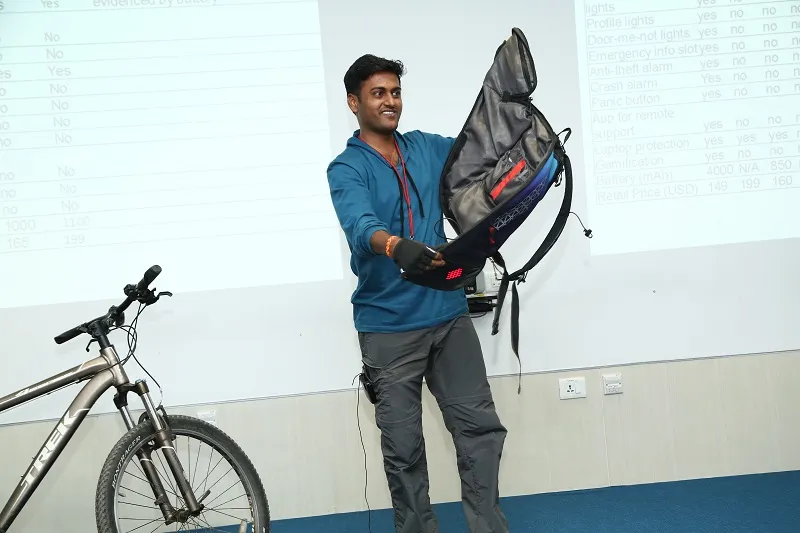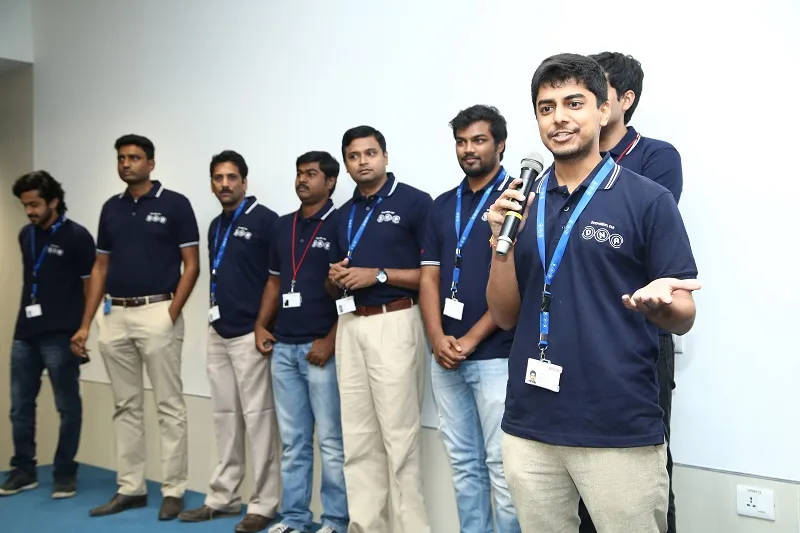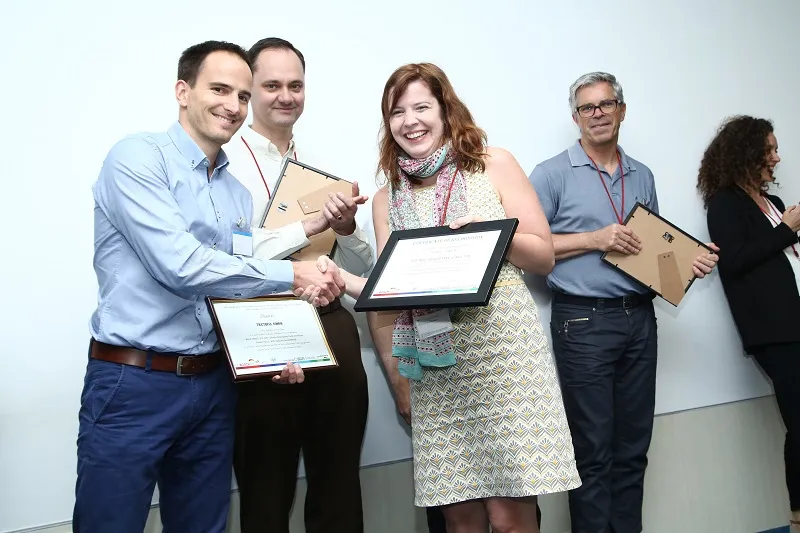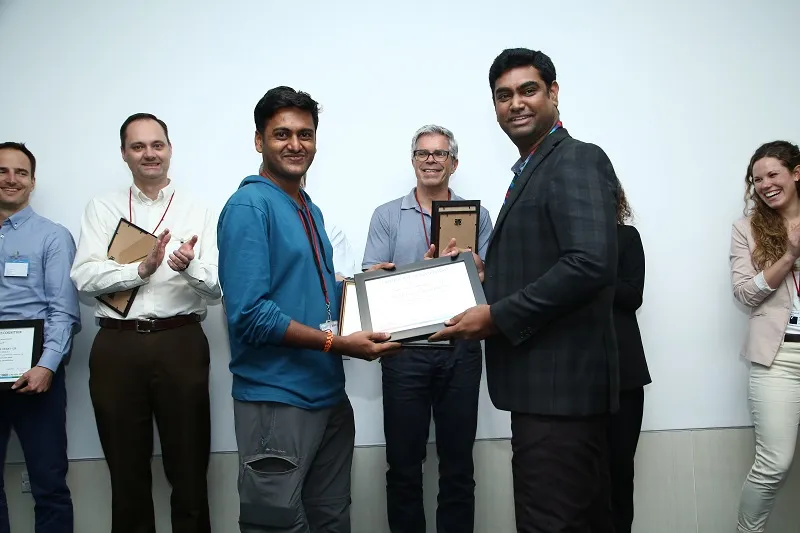How 10 Indian and German startups are looking to improve transport and mobility
10 startups from Germany and India pitched their ventures to a room VCs, angels, and media after a 10-day bootcamp.
Bosch India recently hosted its second Indo-German boot camp, on ‘Transport and Mobility’, in Bengaluru, bringing together entrepreneurs from both countries to explore cooperation and also grow their social impact. This event followed the first Indo-German boot camp, which was held in Berlin in July 2016.
As a part of the initiative, 10 teams were shortlisted to undergo a 10-day training period, where the participants had the opportunity to interact with mentors, corporates, technology experts, and other key stakeholders to get feedback on their startups’ operations. The event culminated in a pitch day, which saw VCs, angels, and investors in attendance looking to identify and support the next big idea. YourStory was also in the audience at the event and interacted with the startups, VCs, and Bosch representatives.
Bosch collaborated with GIZ (Deutsche Gesellschaft für Internationale Zusammenarbeit), Intellecap, Social Impact Lab, IIM Calcutta Innovation Park, World Resource Institute, and DeveloPPP.de on this initiative. The jury for the event was from this group of leaders.
Each startup was given 10 minutes to pitch and make their case and then had five minutes to answer any questions from the audience.

The five Indian startups were:
1. iSenses: A machine intelligence company, iSenses develops technology and products in the areas of machine vision (MV) and automatic speech and system recognition (ASSR). Their current focus, though, is on the development of active night vision systems (ANVS) for vehicles made for high-volume markets.
2. Shipsy: With an aim of increasing operational efficiency and service levels for logistics companies, Shipsy provides data-driven solutions through its customisable SaaS platform. Live products include a field force app, central dashboard, customised analytics suite, and online booking (firstst mile) portal.
3. Havstruck Solutions: As an online platform, Havstruck partners with small fleet truck owners to provide transportation services for intercity ‘full truck load goods’ to SMEs. Truckers can indicate their locations and prices for desired destinations through Havstruck’s app and website. SMEs then search and book the truck based on their needs.
4. Lumos Design: This startup aims to make cycling safer with their new product, Aster, which they claim is the world's safest cycling backpack. Aster has inbuilt hands-free indicators, non-contact brake detection that works across different surfaces, profile lights to indicate rider width, door-me-not front lights, and anti-theft technology.
5. PParkE: As a parking data aggregation service provider, PParkE leverages IoT, data analytics, and a consumer-facing mobile app to help manage urban mobility. The current focus is on helping vehicle owners find parking spots at select locations in the city. By aggregating data and applying machine learning, PParkE’s goal is to deliver content to help people move more proactively in their city.
The five German startups were-
6. TiMMi Transport: TiMMi is a peer-to-peer delivery community, where individuals or businesses with a demand for an inner-city delivery enter their request into their system. This triggers an email notification to all other registered users and the next user to travel along the route of the delivery can complete the job.
7. Adaptive City Mobility: The newly developed vehicle type positions the CITY eVehicle as a counter approach to today's developments in the automotive sector. Going against the grain of building bigger and faster vehicles, ACM has developed an eMobility system for cities which are emission free.
ACM offers municipalities, companies, and people an electric travel option that doesn’t involve charging infrastructure or need public subsidies.
8. Tretbox: Tretbox has developed an electric bicycle with four wheels and weather protection for cargo and taxi use. While currently in the R&D stage, Tretbox envisions that the final vehicle will be lower than normal trucks.
Tretbox also notes that the vehicle will have a top speed of about 25km/hour and because of other technical reasons, will not require a driver's licence to operate. The vehicles are also small enough to run in bike lanes, in case of traffic jams on main roads.
9. Hubject: Positioned as an eRoaming platform, Hubject is meant for customer-friendly charging of electric vehicles. By connecting various players, Hubject aims to create a digital and international charging network for electric vehicles, which they have dubbed ‘The Interchange Network’.
10. Roadbotics: By using simple smartphones attached to the windshields of vehicles, Roadbotics continuously and automatically sees and characterises roadway features such as cracks, potholes, and signage power lines on and along roads. The aim is to leverage the data gathered to provide local governments and enterprises with regular updates about things they wish to actively monitor.
The winners and Bosch’s DNA Accelerator
While the jury was tabulating the final scores and picking winners, Manohar Esarapu, head of Bosch India’s Startup Alliance programme, addressed the audience. He said,
Bosch in India is looking to partner and collaborate with startups that work on disruptive solutions in the areas of mobility solutions, smart manufacturing, smart cities, medtech, agritech, and energy.
To support this, Bosch has an accelerator programme called ‘DNA’, which stands for ‘Discover, Nurture, and Align’. Talking to YourStory after the event, Manohar noted that DNA had been founded in Q2 2016 with the aim of discovering promising startups, nurturing them, getting them investment-ready, and then eventually becoming profitable businesses. At this stage DNA doesn't request equity from startups but is more interested in long term partnerships.
The discovery phase mainly involves scouting for promising startup at events and keeping track of stories in the media and then finally getting the startups onboard. The startups are then vetted by Bosch’s team before they can move onto the 18-week accelerator programme.
At this stage, startups are helped with streamlining their long-term goals, Once a ‘cohort’ is identified, the Bosch startup alliance team provides the right support and guidance so that new businesses can focus on their product and bringing it to market quickly.

12 of Bosch’s DNA incubatee startups took the stage to introduce themselves and the problems they solve. By the time they were done, Manohar was ready with the result of the boot camp and announced the winners across the respective categories
-Best Startup (Indian): PParkE

-Best Startup (German): Adaptive City Mobility

-Best Disruptive Startup (most original idea): Tretbox

-Best on Campus (during the 10 day boot camp): Lumos Design Technology

Website- Bosch Accelerator







